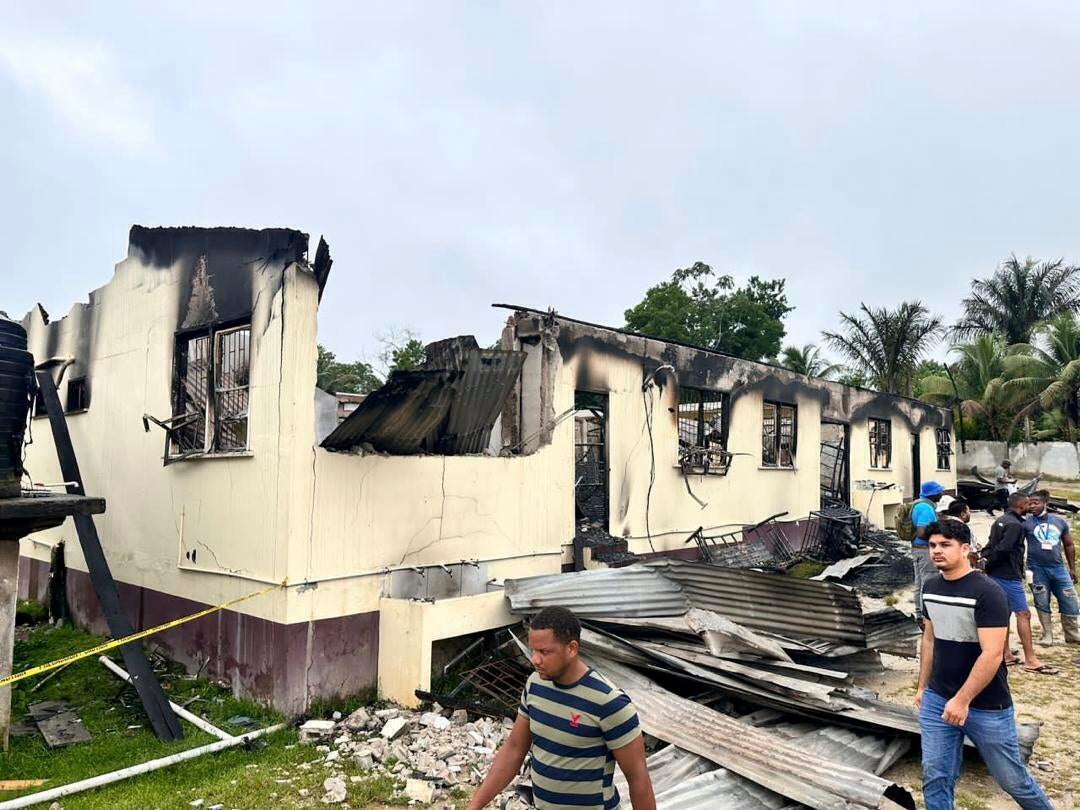A probe into a Guyana dormitory fire that killed 20 children finds a series of failures
A government commission in Guyana tasked with investigating a fire that killed 20 children at an Indigenous boarding school last year has found multiple errors and systematic failures

Your support helps us to tell the story
From reproductive rights to climate change to Big Tech, The Independent is on the ground when the story is developing. Whether it's investigating the financials of Elon Musk's pro-Trump PAC or producing our latest documentary, 'The A Word', which shines a light on the American women fighting for reproductive rights, we know how important it is to parse out the facts from the messaging.
At such a critical moment in US history, we need reporters on the ground. Your donation allows us to keep sending journalists to speak to both sides of the story.
The Independent is trusted by Americans across the entire political spectrum. And unlike many other quality news outlets, we choose not to lock Americans out of our reporting and analysis with paywalls. We believe quality journalism should be available to everyone, paid for by those who can afford it.
Your support makes all the difference.A government commission in Guyana tasked with investigating a fire that killed 20 children at an Indigenous boarding school found multiple errors and systematic failures.
Calling for reforms to avoid a repeat of the deadly 2023 fire, the report presented to President Irfaan Ali late Friday found there was a delay in seeking help and contacting the fire station, and that when help arrived, there were issues with crowd control and access to the dormitory located in the town of Mahdia near the border with Brazil.
The report also noted there was a lack of water supply and found “inadequacies” in the fire service and firefighting equipment.
“These factors assisted with the speed of the conflagration,” said Brig. Gen. Joseph Singh, commission chair and retired army chief of staff.
The report confirmed that the May 2023 fire was intentionally set by a 15-year-old student, who was later arrested and charged with multiple counts of murder. Nineteen students and the infant son of the dormitory manager died. At least 14 other students younger than 18 were rescued from the blazing, one-story building.
Investigators found that many of the dormitory’s windows had iron grills to keep out unwanted adult visitors, and panicked dorm officials were unable to find the keys to five doors that had no grills in time to save people.
The report cited “human failure” amid “chaotic and fiery circumstances.”
Police have explained that grills were placed on windows to prevent some of the teenage girls from escaping at night and on weekends to socialize with miners who flash gold, diamonds and cash in attempts to groom girls for sexual favors. The commission contended that such culture needs to change given that the acts occur “with the tacit support of family members who benefit financially from such arrangements.”
President Ali echoed calls for a culture change among students and adults, noting that education officials and other authorities face “tremendous difficulties in the behavioral pattern and changes in many schools, and we now have to work and see how we incorporate a higher degree of discipline through a systemic intervention.”
Guyana’s government builds dormitory schools to house students from rural communities while their parents carry out daily chores such as hunting and farming. Months after the fire, government officials said they would pay $25,000 to the parents of each of the children who died in the fire as part of a settlement.